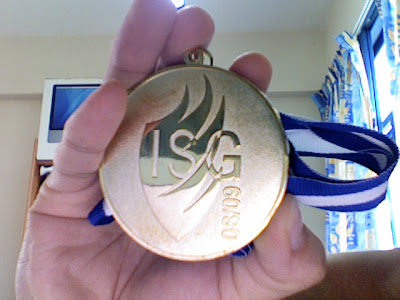(Ed: This was from a long time back; I’m clearing the backlog of blog drafts which have been lying around for far too long.)
The gold medal from Nanyang Technological University (NTU)’s Inter-School Games (ISG) Touch Rugby tournament which the National Institute of Education (NIE) team won. Captain = me (whee).
Why it means everything to me:
- First gold medal in a team sport.
- First touch rugby medal + gold at that.
- May not have been the best captain/coach around but I think I performed to expectations. Would’ve liked to have been my usual self during training but it was hard.
- Played with a great + talented + very, very skillful team. (For the KR folks: it’s like playing on the EH/TH team. Yeah, it’s that feeling.)
- Sense of accomplishment + feeling of getting something I deserve.
Although I do admit the playing field might not have been very level; the NIE team was filled to the brim with P.E. teachers i.e. people with some of the best co-ordination + ball sense around. So even if this was the first tournament for some, they were some of the most skilled touch rugby virgins around.
Therefore, my apologies go out to anyone from the other Schools whose dream of Gold wasn’t realised as well. I hope you get your chance in the future.
P.S. the line, for the young ‘uns, is from “Come On Eileen” by Dexy’s Midnight Runners. Not that I’m very old, but it’s nice to pretend that I am much wiser. (Then your response here might be: “It’s nice to humour you…”)
